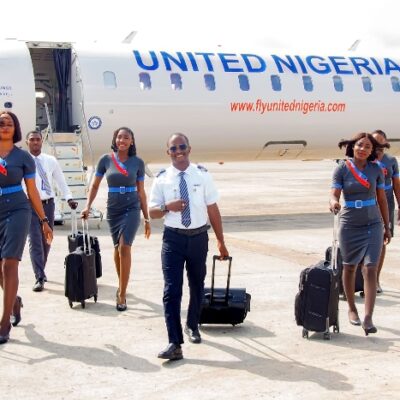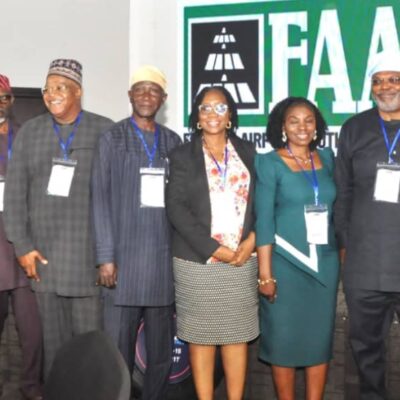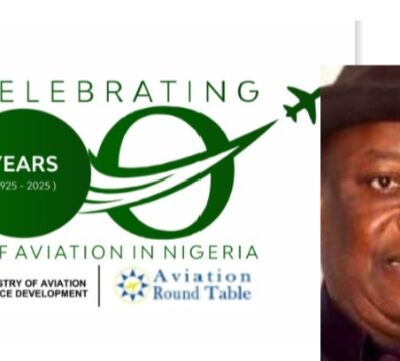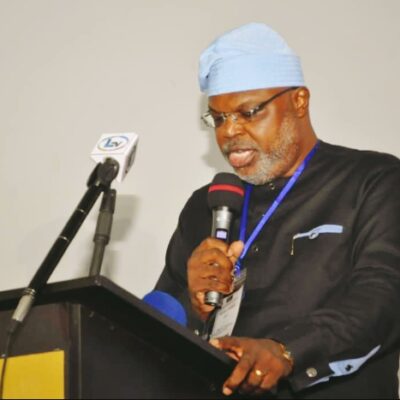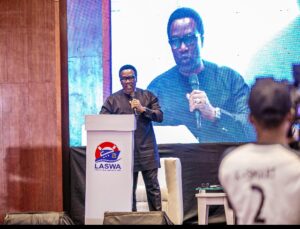
BY OLAPEJU OLUBI
The Director General and Chief Executive Officer of the Nigerian Meteorological Agency (NiMet), Professor Charles Anosike, has called for stricter adherence to weather-related operational guidelines by ferry operators to safeguard lives and improve the efficiency of waterway transportation in Nigeria.
Speaking at the Regional Ferry Safety Conference, held from June 25–26, 2025, at the Continental Hotel, Lagos, Professor Anosike highlighted the urgent need to integrate meteorological services into daily ferry operations, particularly in the face of increasingly unpredictable weather patterns.
“Maritime regulation must ensure that ferries and ports adopt more sustainable practices, including integration of weather early warning alerts into ferry operations,” Anosike said.
“Timely and accurate early warning is indispensable and serves as a guide toward strategic operational planning, empowering ferry operators to efficiently plan routes and strategically deploy crew members to minimize the impact of adverse weather events and enhance safety,” he noted.
He emphasised that real-time weather updates play a pivotal role in enhancing operational readiness and passenger safety.
These updates, he noted, allow ferry operators to conduct comprehensive pre-departure risk assessments and make informed decisions on the safety and feasibility of each journey.
“Such real-time information significantly sharpens search-and-rescue readiness,” he added.
Professor Anosike also highlighted the importance of a collaborative approach in designing effective weather services.
“Realizing that meteorological services are better provided in collaboration with the users, NiMet, in year 2022, hosted a needs assessment workshop for stakeholders, including the Nigerian Maritime Administration and Safety Agency (NIMASA), the Nigerian Ports Authority (NPA), the Nigerian Inland Waterways Authority (NIWA), the Nigerian Navy, Marine Police, Fishing Communities, Ferry Operators, etc.”
This engagement led to the signing of Memoranda of Understanding (MoUs) with key stakeholders, including NIMASA, NIWA, and the Maritime Organization of West and Central Africa (MOWCA), aimed at deepening the integration of meteorological support in the maritime sector.
According to him, “The objective of the collaborative activities between NiMet and the relevant Agencies in the maritime industry is to enhance the capacity of the Parties with a view to the provision of relevant meteorological data and tools that will enhance the sustainable development of the marine environment and delivery of products and services to floating equipment and shippers for safety of navigation, maritime security, marine environment protection, and other maritime activities.”
Professor Anosike outlined five key strategies for addressing the underutilization of meteorological data in the maritime sector, with the goal of improving the safety, resilience, and efficiency of ferry services across Nigeria.
In his closing remarks, he stressed the wider implications of weather services on national development.
“Weather forecasts for safe navigation are fundamental to the economic prosperity of Nigeria’s coastal dwellers and by proactively addressing our existing challenges and diligently implementing these recommendations, we can make significant progress, enhance the well-being and efficiency of ferry operations towards achieving sustainable economic development in Nigeria.
“NiMet is well-positioned to provide impact-based marine forecasts and other Meteorological products & Services to ensure safety of ferry operations,” he stressed.
Olapeju is a journalist and aviation reporter.


